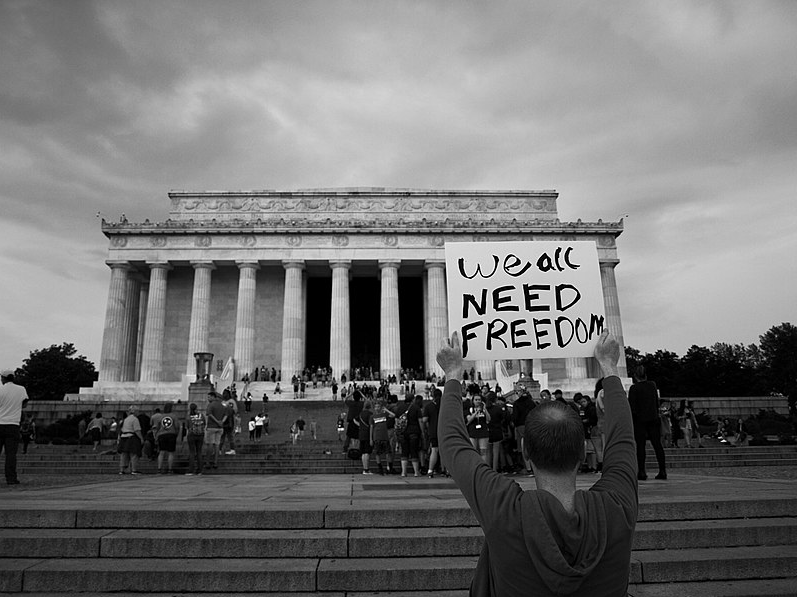Alabama’s part-time state legislature has more businesspersons than professional politicians. A citizen legislature is wonderful for limited government, but today our citizen legislators must create resilience against efforts by Washington and blue states to erode our freedom.
Let’s begin with federal efforts. President Biden has issued “whole-of-government” executive orders about Environmental, Social and Governance investing and climate change. The federal government spent $6.2 trillion in 2022 with 2 million civilian employees and 4 million contract employees, and the Code of Federal Regulations runs over 150,000 pages. Whole of government brings enormous resources to bear.
Federal grants create another vulnerability. Washington provided roughly 35 percent of Alabama’s $54 billion state and local government general revenue. Alabama ranks 14 among states in fiscal dependence on Washington.
Federal dollars have always had strings. In the 1980s, highway funds were leveraged to make states raise the drinking age. Then the Affordable Care Act tried to make states expand Medicaid. Today the U.S. Department of Education (DoE) is using Title IX funding to make schools let transgender students play girls’ sports.
Republican presidents since Ronald Reagan have tried to close the DoE. Yet near term prospects for "draining the swamp” seem bleak, for career bureaucrats, many of whom favor progressive causes, write federal regulations.
Reducing Alabama’s dependence on Washington offers resilience, however. The DoE would matter less to Alabama if we refused federal education dollars. Is this impossible? Our elected officials likely think so, as the Common Core debacle reminds us.
Common Core guaranteed states could qualify for the Obama administration’s Race to the Top funding. State legislatures did not hesitate to comply. Indiana, for instance, adopted Common Core before the standards were finalized and then became the first state to drop the standards. I wonder if legislators even read what they were adopting.
And yet the dollar amounts for Race to the Top were modest, with only $4 billion available to states. America’s K-12 schools serve (educate may be too generous) around 50 million students annually, so less than $100 per student motivated sight-unseen adoption of the program.
Indeed, the federal government provides less than 10 percent of K-12 education spending. State and local governments are doing the heavy lifting. Thus, Alabama tolerates vulnerability to progressive control for only a handful of dollars.
Raising our taxes or accepting spending cuts would lessen dependence on federal dollars. But neutralizing laws and regulations from Washington and other states might require creative governmental action.
Trump often spoke about the abysmal performance of shower heads and other regulated products, and in 2020, the Trump administration relaxed federal shower head regulations. Rescinding earlier regulations should restore shower freedom, right? But no major companies began selling higher capacity shower fixtures. They expected, correctly, that the Biden administration would reinstate the regulation if elected.
The campaign against gas-powered cars offers another example. Proposed EPA fuel economy and emissions regulations would largely prohibit gas-powered cars but will face court challenges and could be rescinded by a future Republican president. So, California is also pursuing prohibition through its emissions controls, which about 15 other states follow. Because many manufacturers only want to produce products for sale across the nation, California and other states leverage their market size to throttle Alabamians’ economic freedom through such rules.
Protecting our freedom in such cases is challenging. Alabama might need to consider a rule outlawing California-approved cars (or other products) which on its face restricts economic freedom, but not in the larger context. In a world with no restrictions on economic or personal freedom from other states or in Washington, Alabama could follow strict laissez-faire. Resilience against external infringements may require activist measures, just as defending a nation can require using the same weapons the invaders employ.
Alabama’s part-time citizen legislature was great for repairing the roads (except widening I-65), building government buildings, and running the schools. But protecting freedom requires bolder action today, perhaps in coordination with other red states. Alabama lawmakers must step up their game to preserve our freedoms.
Daniel Sutter is the Charles G. Koch Professor of Economics with the Manuel H. Johnson Center for Political Economy at Troy University and host of Econversations on TrojanVision. The opinions expressed in this column are the author’s and do not necessarily reflect the views of Troy University.
The views and opinions expressed here are those of the author and do not necessarily reflect the policy or position of 1819 News.
Don't miss out! Subscribe to our newsletter and get our top stories every weekday morning.










